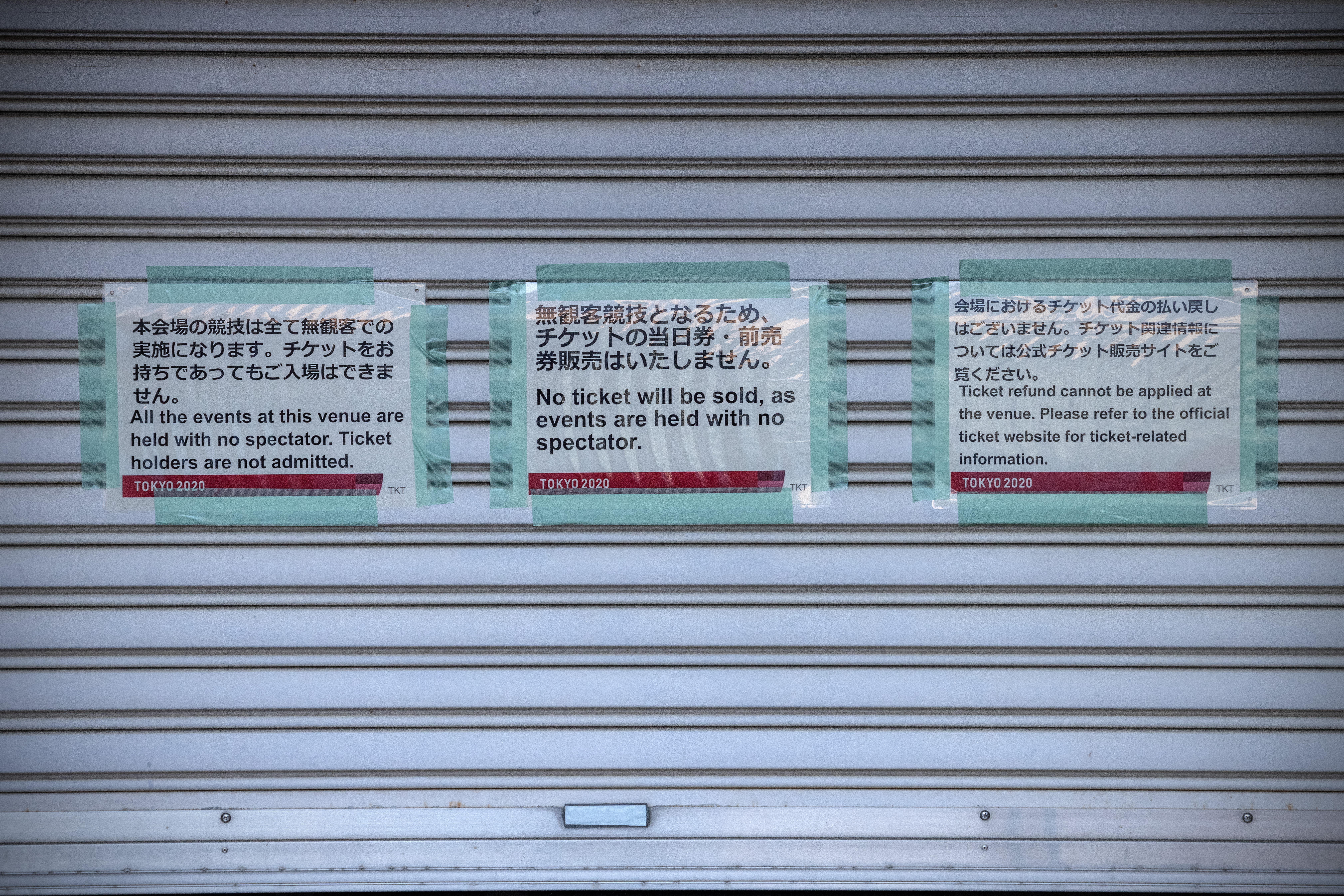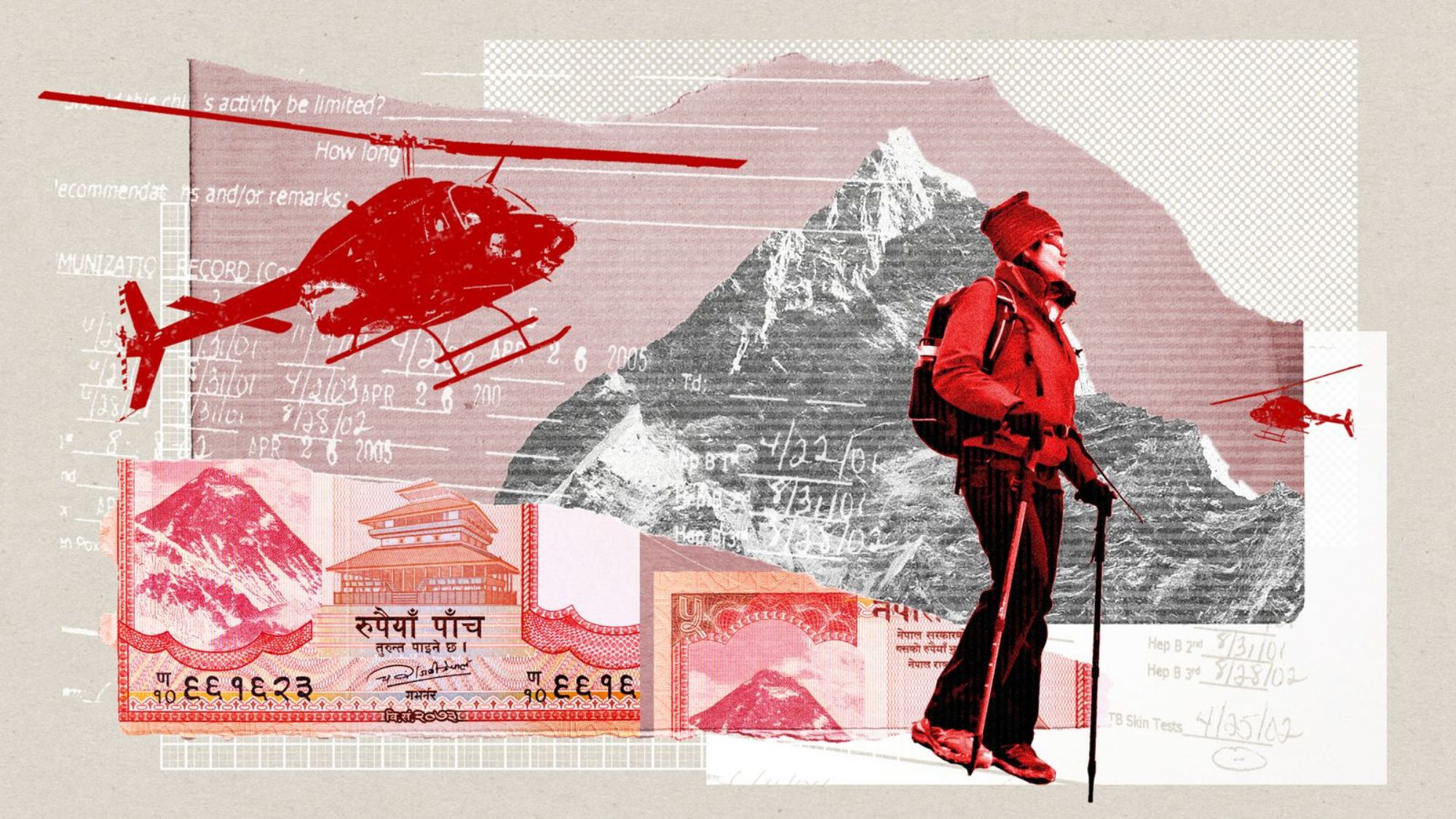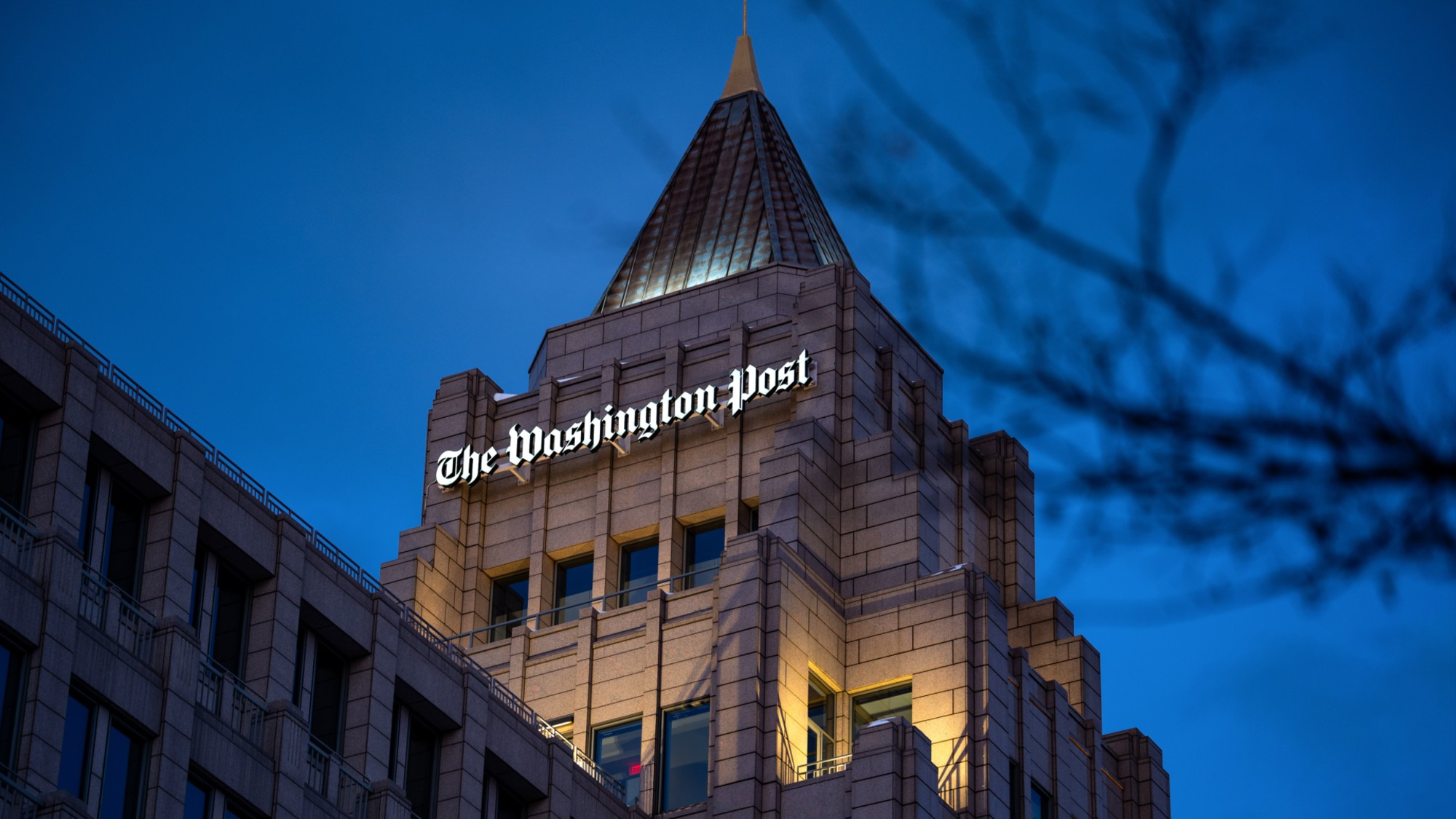Disappointment for sponsors and hosts at Tokyo Olympics
Sponsors are feeling grim

A free daily email with the biggest news stories of the day – and the best features from TheWeek.com
You are now subscribed
Your newsletter sign-up was successful
The smartest insight and analysis, from all perspectives, rounded up from around the web:
"The 2021 Olympics are turning into a $20 billion bust," said Alastair Gale at The Wall Street Journal. Former Japanese Prime Minister Shinzo Abe pitched hosting the Olympics as a way to "lift the country's spirits after the 2011 tsunami that killed almost 20,000 people." Local organizations anticipated that tourists would spend "nearly $2 billion on meals, transport, hotels, and merchandise" during the 17-day spectacle. But after $7 billion in spending on new arenas, any "expectations for an economic windfall have largely evaporated." The Games have opened a year later than expected, with virtually no spectators amid a still-raging pandemic. The "grim mood" is being felt by sponsors. When Toyota, Japan's most valuable company, said last week "it wouldn't run any ads in Japan tied to the Olympics, it sent a message louder than any TV commercial" could.
"Every Olympics since 1960 has run over budget," said Andrew Ross Sorkin and Sarah Kessler at The New York Times, and this one is no different. Tokyo "initially said it would spend $7.3 billion, but a 2019 government audit put the actual spending at around $28 billion." Economist Andrew Zimbalist suspects the tab will be even higher. But cities keep bidding because politicians are swayed by "construction-industry executives getting billions of dollars in contracts." They line up "trade unions and investment bankers and consulting firms" that use "faulty methodology to say, 'This is going to put our city on the map.'"
The Week
Escape your echo chamber. Get the facts behind the news, plus analysis from multiple perspectives.

Sign up for The Week's Free Newsletters
From our morning news briefing to a weekly Good News Newsletter, get the best of The Week delivered directly to your inbox.
From our morning news briefing to a weekly Good News Newsletter, get the best of The Week delivered directly to your inbox.
The Olympics may often disappoint the host country, but the event is still a big draw internationally, said Tiffany Hsu, also at the Times. NBC, which paid $12 billion for the broadcast rights to the Games through 2032, said it has already surpassed $1.2 billion in ad revenue, with more than 140 sponsors taking part, a 40 percent increase from 2016. NBC is also using the opportunity to heavily promote its new Peacock streaming service, said Tara Lachapelle at Bloomberg. But viewers through the app are "getting a slimmed-down version unless they pay for a premium upgrade." That undermines "the symbolism of the Olympics as a worldwide communal festival" and could eventually turn the Olympics into just another niche event.
Growing disillusionment with the overpriced spectacle is already creating "reputational risks" for advertisers, said The Economist. The Olympics have historically been a corporate bonanza. But the divisiveness of this year's event prompted some sponsors to "hire consultants to assess the possible impact on their brands of sticking with the program or withdrawing." The problem is it gets no easier from here: The 2022 Winter Olympics, in Beijing, pose an even greater test for global brands. If Toyota, for instance, was unhappy with the rash of scandals around the Tokyo Olympics, said Fred Hiatt at The Washington Post, it should consider the risks of cheering on the Beijing Games in February "while 1 million or more Chinese are confined to concentration camps 1,600 miles to the west." So, too, for other international brands, such as Samsung and Coca-Cola. Amid a heightened campaign of repression in China, "it is hard to imagine corporate executives gathering at the Opening Ceremonies" to validate China's oppressive regime.
This article was first published in the latest issue of The Week magazine. If you want to read more like it, you can try six risk-free issues of the magazine here.
A free daily email with the biggest news stories of the day – and the best features from TheWeek.com
-
 Nepal’s fake mountain rescue fraud
Nepal’s fake mountain rescue fraudUnder The Radar Arrests made in alleged $20 million insurance racket
-
 History-making moments of Super Bowl halftime shows past
History-making moments of Super Bowl halftime shows pastin depth From Prince to Gloria Estefan, the shows have been filled with memorable events
-
 The Washington Post is reshaping its newsroom by laying off hundreds
The Washington Post is reshaping its newsroom by laying off hundredsIn the Spotlight More than 300 journalists were reportedly let go